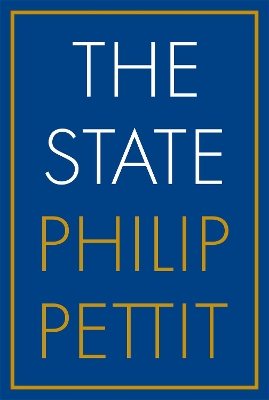A study of the demands every state should meet, even before it faces the demands of justice
The future of our species depends on the state—on how effectively states resist corporate capture, religious zealotry, and nationalist mania, and how they find a way to work together so that the earth heals and its peoples prosper. Are states up to the task? In this book, the prominent political philosopher Philip Pettit examines the nature of the state and the implications for how far it can serve peace and justice both within its borders and beyond them. Doing so, he breaks new ground by making the state the focus of political theory and by presenting a persuasive, historically informed image of an institution that lies at the center of our lives.
.
Offering an account that is more realist than utopian, stipulating that certain institutions are unlikely to be eliminable but are capable of being improved, Pettit explores the organizational function and structure of the state. He offers a theory and rationale of the state under conditions in which rulers have a real power to achieve things, but not so much power that they can ignore those over whom they rule. In light of that theory, Pettit explores the form that a functional state should ideally take. He contends that it must satisfy a basic ideal of statehood that is arguably presupposed by the richer ideal of justice. Only if states approximate this functional ideal will they be able to deal with the age-old problems of extreme poverty and bitter discord as well as those that loom over the coming centuries, including climate change, population growth, and nuclear arms.
- ISBN10 0691182205
- ISBN13 9780691182209
- Publish Date 14 March 2023
- Publish Status Forthcoming
- Publish Country US
- Imprint Princeton University Press
- Format Hardcover
- Pages 368
- Language English
- URL https://press.princeton.edu/titles/14303.html
